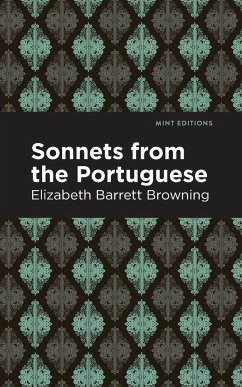
We chose Sonnet 28 in part for its distance from that one. Parts of the sequence, if not the whole, remain popular today, especially the penultimate sonnet, which begins, “How do I love thee? Let me count the ways.” The title also followed the pretense-albeit a flimsy one-that the sonnets were merely translations, with no basis in the poets’ lives.

The Portuguese poet Luís de Camoëns was famous for his love sonnets Barret Browning’s title referred, as well, to her earlier poem “Caterina to Camoens,” one of Robert’s favorites. In those same months, Elizabeth also began a series of sonnets about their courtship, shown to Robert only after their elopement, and published in 1850 under the title Sonnets from the Portuguese. Over the twenty months of their clandestine courtship, Elizabeth and Robert wrote each other almost six hundred letters, most of which were published after her death. (The Brownings would live there together until her death in 1861 they had one son.) They exchanged letters, he paid her weekly visits, and their literary friendship soon became something stronger: “I love your verse with all my heart, dear Miss Barrett,” he wrote in January 1845, “and I love you too.” Despite her illness, the pair made plans to elope and live in Italy: in September 1846 those plans were fulfilled. Robert Browning, five years younger and much less successful, admired her poetry, as she admired his. Well-known as a poet by the early 1840s, Elizabeth Barrett lived as an invalid in the London house of her strict father, who supported her writing but did not want her, nor her siblings, ever to marry. That life involves one of the great love stories in literary history. Here, we must identify the vivid, distractable lover who speaks as Elizabeth Barrett Browning-indeed, we can set the poem beside what we know of her life.


In dramatic monologue, however, the speaker is never the poet herself. In dramatic monologue a single character’s speech, depicted in real time, reveals by irony or indirection that character’s inmost thoughts, and makes him or her seem present, as if on stage. Elizabeth Barrett Browning’s exciting and excited sonnet takes part in the centuries-old tradition of amorous sonnets and sonnet sequences (as old as the sonnet form, as Dante and Petrarch), but also draws on the new Victorian kind of poem called the dramatic monologue, which her husband Robert Browning helped to invent.


 0 kommentar(er)
0 kommentar(er)
